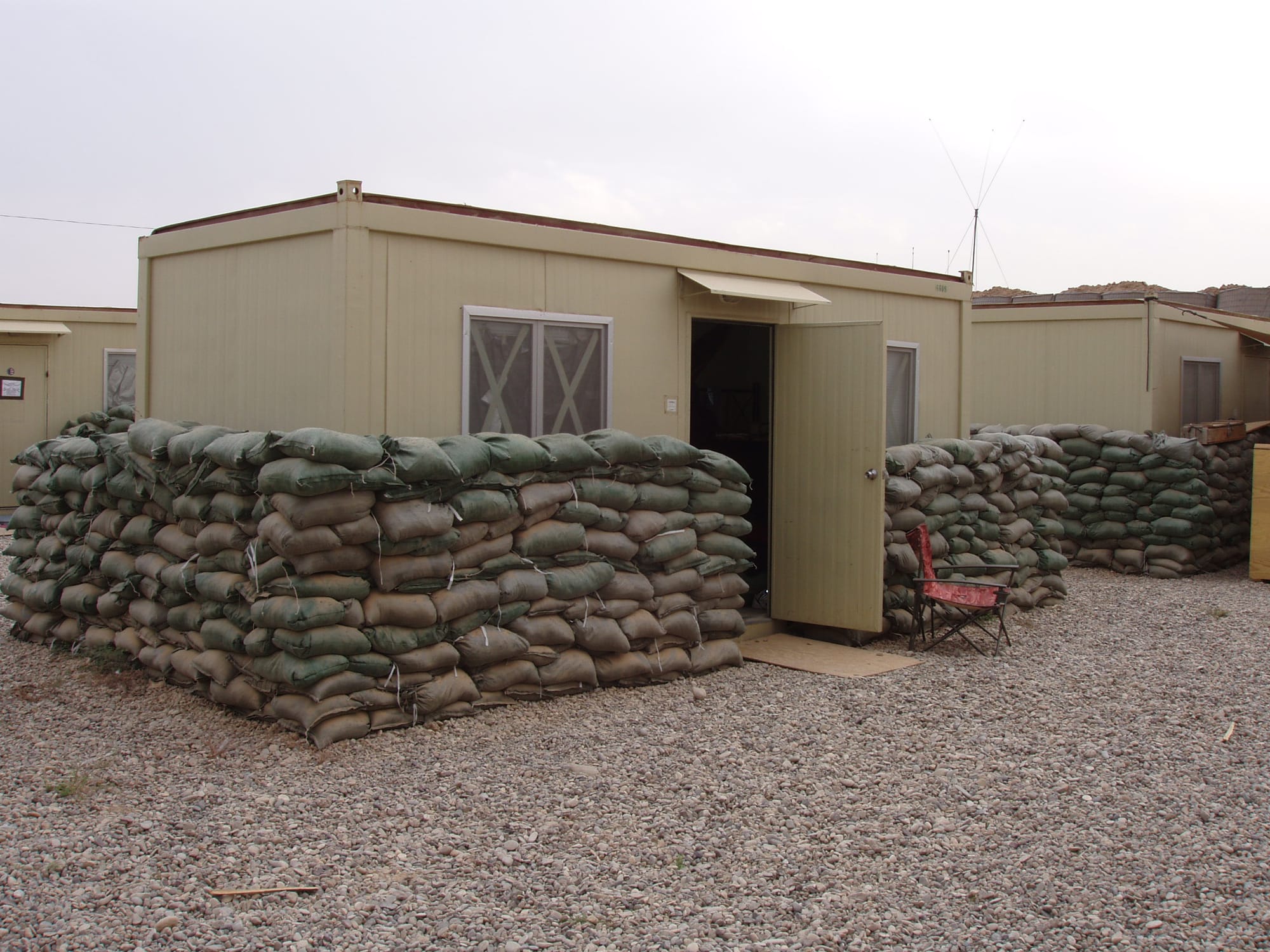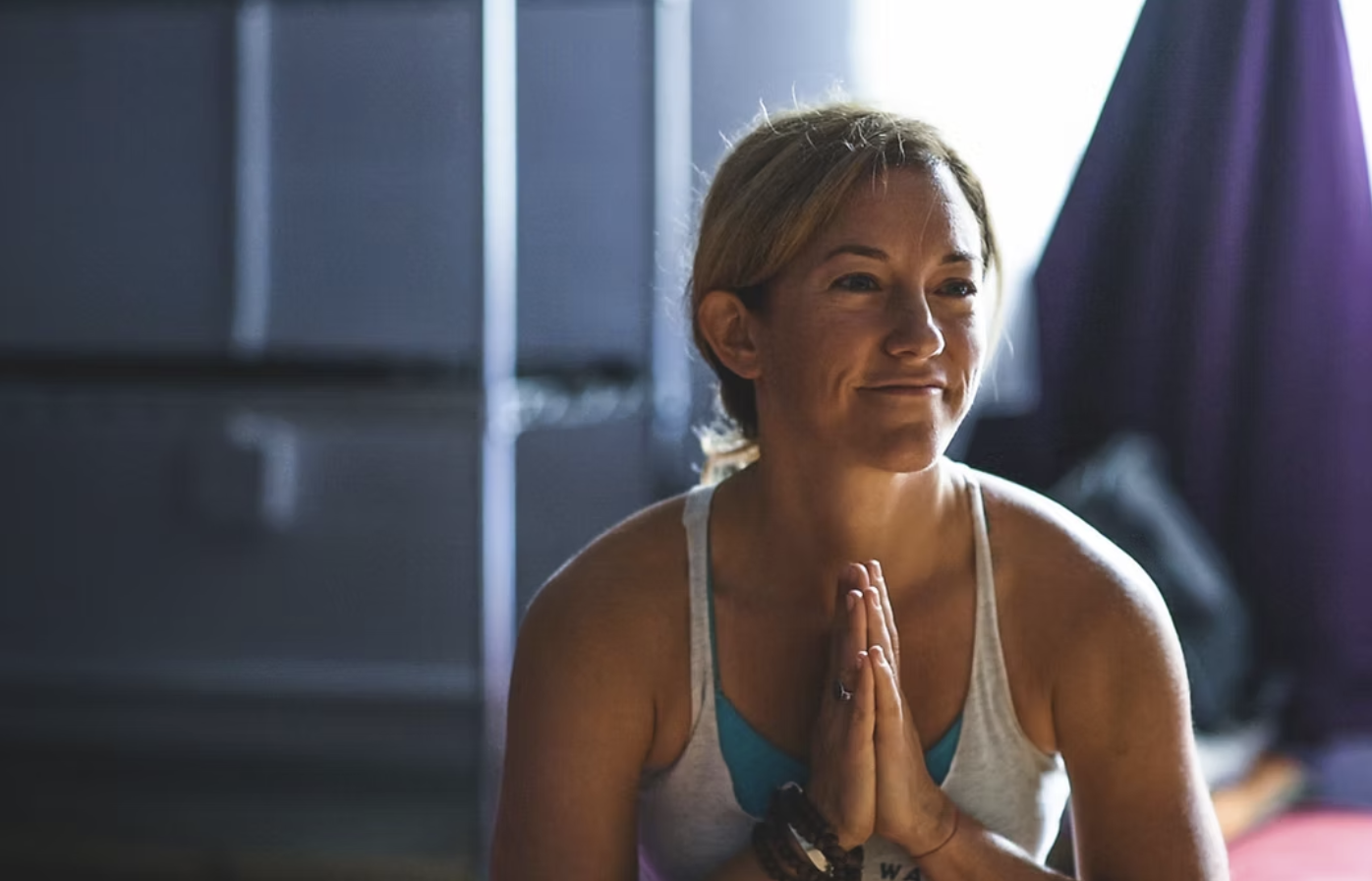Chapter 4: The Power of Your Story
July, 2018: Veterans Yoga Retreat in Rhinebeck, NY
I’m thinking, I don’t want anything to do with this guy Patrick.
Yes, we're both Veterans, so I have his back, but his energy is not something I want to deal with.
Patrick Dillon is an Irish Vietnam Veteran in his 70s, and it's clear he’s never fully come back from the war.
He walks around in black cargo pants and a black cable-knit sweater, even though it’s July. His balding Irish-blonde hair is styled into a mohawk. His face is deeply lined, but it still pulses with vitality when he talks about how he’s been wronged.
For part of the day, he carries around a plastic baby doll. He’s written on the doll, things like the symbols for anarchy, and words like “baby killer.” He's put a small glass jar over the doll's head.
His whole energy screams: “I’m fucked up, and when you look at me, I want you to feel fucked up too.”
I want absolutely nothing to do with this guy.
Once a day, we all sit in a circle and get a few minutes to share. So sometimes, I’m forced to listen to him.
This afternoon is one of those times…
Patrick is speaking. This time, instead of talking about the pro baseball career he missed out on, or how he never earned his father’s love, he shares something I’ve never heard from him before.
He starts talking about the first time he walked into a South Vietnamese village:
Finally, I was there, you know? After all the training and all the bullshit, I was gonna get the chance to be a man worth a damn. I wasn’t drafted, I volunteered. I saw on the news that the people in Vietnam needed our help. Getting off the helicopter and walking toward the village, I felt it in my heart. I was a liberator. I was just as good as my father and uncle, who served in World War II. I saw a young Vietnamese woman walking out of the village. She walked straight toward me, and I smiled. As she came closer, I opened my arms, ready for my hero’s welcome. She spit in my face. I didn’t understand. She looked at me, full of anger, and started saying words I didn’t understand. But the meaning was clear: ‘Go. Leave. We don’t want you here.’ Then I saw the hard faces on the other villagers. The shock of that moment was the first domino to fall. Over the next few months, going from village to village, I realized we weren’t wanted anywhere. And it took me a while to figure out why.
As Patrick speaks, I feel uncomfortable. A buzzing, crawling sensation spreads slowly through my stomach and into my body, like an electric centipede.
Not this again.
I’ve felt this same sensation on and off for over 10 years and can’t figure out why.
Could it be something I ate? No way. The food here is all like organic and high quality...
Then what?
Is it irritable bowel syndrome? Ulcers? Cancer? What the hell is this?
I struggle to keep listening:
I’m ashamed. I learn what I’m really part of...a killing machine making mistake after mistake, carpet bombing villages with women and children. We’re shooting people without knowing if they’re guilty or innocent. We kill the chickens, the pigs, the water buffalos. It’s all sending people to the side of the Viet Cong. What the hell is the point of all this? I come home and I’m like, demoralized. Not proud. Angry. When I get off the bus in San Francisco, crowds of people have gathered. A woman breaks free from the cops, puts a sunflower in my hand, and shouts at me, ‘BABY KILLER!!’ My father and grandfather look down on me and call me the Dillon who ‘lost his war.’ I feel guilty about being alive at all. About not coming home in a body bag like my best friend from high school...
Ok. Fuck this. My body is going haywire.
I need to get out of this room now.
Annie, the co-leader of the retreat, speaks up:
“We’re moving into an iRest* session. Everyone, grab your bolsters and blankets, and make yourself comfortable. Thank you, Patrick, and everyone who shared.”
I decide to stay. iRest usually relaxes me. Maybe it will help.
Annie’s voice travels as she walks through the room.
“Let your body fully relax. Find the most comfortable position you can, whatever that looks like for you."
As soon as I lie down on the yoga mat, I feel the muscles along my head, back, and legs lock up. I’m nearly vibrating from the energy running through me.
What the fuck is going on? Why does my body always feel so sick? Why can’t I just relax?
What the hell did I eat for lunch?
I start having all the same thoughts again, and then I remember what I learned from a different retreat:
Sometimes when strong sensations come up, I need to feel them, not try to figure them out.
I do my best. I focus on the sensations in my stomach. I hear Annie's voice again.
"You might invite a few deep, slow inhales, followed by soft, smooth exhales. Feel your body. Start at the soles of your feet, noticing any sensations, then move up through the legs…”
I follow her voice. I feel my feet, calves, and thighs. Then my mind drifts somewhere else.
The shipping container.
What the hell?
Why am I back in the shipping container where I spent my last month in Iraq?
What is this? Just a daydream?
Wait. Don’t think.
Just feel.
My body is tense. It's buzzing. Frozen.
I’m back in that shitty bed, staring at the ceiling like I did before every mission. Same two-sentence spiral: I can’t go. I have to go.
I can’t go. I have to go. I can’t do this anymore, this isn’t right. But I took an oath. Yeah but are we really helping these people? This isn’t worth risking my life for anymore. But if I don’t go, the team gets broken up. I have to go.
ARRGH!
My whole body is clenching and unclenching.
Why am I reliving this?
Back then, this scene would end with boots crunching on gravel, three hard knocks, and a “Round up!”
Then I’d force my stiff body onto the next mission.
But this time, no knock comes. I’m stuck in the loop.
Wait a second.
These sensations—right here on this bed—feel just like the ones I’ve been carrying for ten years. The ones I’ve never found a cause for...
Has part of me been stuck in this shipping container all along?
Did some part of me get left behind in Iraq?
This can’t be.
I can’t end up like this fucking guy Patrick.
November 2023
Patrick’s story did something nothing else had done. It activated my nervous system in a way that pulled up repressed memories. His story helped me realize that the fight-or-flight reactions I felt in 2004 were still trapped in my body, unresolved.
I understood Patrick's pain completely. His nineteen-year-old self and my nineteen-year-old self went through almost the exact same experiences. Some of the orders we followed were the same kinds of oppressive actions we’d sworn to protect others from.
I tormented myself over the no-win choices I’d faced, and got stuck in a loop of self-torture.
I’d sealed those memories away, hoping they’d fade. But hiding them only preserved their power. That conflict never ended. It sank deep into my nervous system and drained my life force for more than fifteen years.
Patrick’s story is something I will forever hold with gratitude. Parts of him were crushed by a weight no human was meant to carry. But to me now, his worn, lined face is the face of the unconquered.
This tough Irish warrior, son of generations of warriors, who carried the moral weight of the Vietnam War for over five decades, changed my life.
His story reconnected me to mine.
Time doesn’t heal all wounds. Some need a different kind of medicine. When I told only half my story, I was living only half-alive.
As I told more of my story, the power frozen in those memories started to thaw and fill my body with energy I hadn’t felt in years.
Our full story includes how those moments impacted our body. The shame that kept us from feeling proud of our service. The parts of us we never brought home. The endings that made us feel powerless. And the ways we’ve found to be whole again.
Thriving, not just surviving, depends on telling our full story. You’re reading this now because Patrick told his.
I had no idea that listening—really listening—to someone else's pain would be a doorway back to my own heart and power.
What’s the power of your full story?
It’s time to find out.
Move on to Chapter 5: No Story Left Behind

Additional Mission Support:
iRest (Integrative Restoration) is a guided body-scan meditation developed by Richard Miller, Ph.D. in 2006.
It’s now used in 19 military hospitals, 46 VA facilities, and more than 75 organizations that serve Veterans worldwide.
You can try out free guided sessions here: Try iRest Now

Annie Okerlin, my iRest teacher for the past seven years, offers free online iRest sessions for Veterans every week.
You can find her at → exaltedwarrior.com